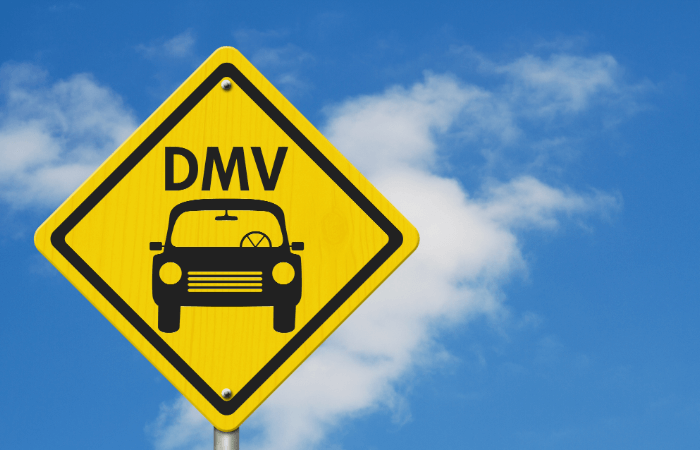Welcome to our comprehensive guide on DMV states in the United States. This article provides detailed information about the services offered by the Department of Motor Vehicles (DMV by state) across various states. Whether you’re looking to obtain a driver’s license, register your vehicle, or understand the specific DMV requirements in your state, we’ve got you covered.
Key Takeaways
- State DMVs are responsible for driver licensing and vehicle registration, with procedures varying significantly across states, making it crucial for residents to understand their local regulations.
- Every state offers specific resources and contact methods for DMV-related services, enhancing accessibility and support for residents navigating the licensing and registration processes.
- The modernization of DMV services through online platforms and self-service kiosks has improved efficiency and convenience, allowing users to manage tasks with greater ease.
Understanding State DMV Offices
The primary function of state DMV offices is to oversee the issuance of driver’s licenses and vehicle registrations. These offices, officially known as the Department of Motor Vehicles, are responsible for managing motor vehicle registration and driver licensing across the country. However, the term “DMV” and its exact responsibilities can vary between states, and the experience of accessing DMV services depends on the specific state in which you reside.
In the U.S., the DMV is typically known as the Department of Motor Vehicles, but in some states, it may go by different names, such as the Motor Vehicle Administration (MVA) in Maryland or the Driver Services Department in Illinois. Each state has its own rules and procedures, making it important to understand how your state operates. For example, Florida and North Dakota both have separate divisions handling driver licensing and vehicle registration, while other states may combine these services in one department.
One important responsibility of DMVs across the U.S. is issuing vehicle titles, which confirm vehicle ownership and track any associated loans. This service is vital for establishing legal ownership and is often tied to vehicle registration. The National Motor Vehicle Title Information System (NMVTIS) also plays a crucial role in ensuring the security of vehicle title data across states. This system helps track the history of vehicle titles to prevent fraud and protect consumers.
The DMV also handles driver licensing services, including testing, age requirements, and renewals. These services may differ from state to state, reflecting regional regulations.
With so many different DMV systems in place, it’s essential for residents to familiarize themselves with the specific requirements and processes in their state. Whether you’re asking “What is the DMV called in other states?” or wondering about the exact procedures, understanding DMV by state systems can help streamline your experience.
List of Every State’s Driver’s License Department
In the United States, each state has its own Department of Motor Vehicles (DMV) or equivalent agency responsible for driver licensing and vehicle registration. These departments are organized at the state level to provide essential services related to motor vehicles and licensing. Each state offers specific resources and online platforms to assist residents with their DMV needs, ensuring access to information and support for a smooth experience.
Here’s a Comprehensive List of All U.S. States:
Each state provides various contact methods, including phone, email, and online chat, to assist with customer service related to DMV functions. Given that there are 51 DMVs across the US, this accessibility is crucial for addressing any questions or issues residents may have during the process.
Registering Your Vehicle by State
Registering your vehicle is a fundamental requirement for all motorists, and the process can vary significantly from state to state. Here are the key aspects of vehicle registration to keep in mind:
- Registration Fees and Renewal: Vehicle registration typically involves a fee and must be renewed annually. This applies to various types of vehicles, including cars, boats, and recreational vehicles.
- Ownership Changes: When vehicle ownership changes, re-registration is required to update official records.
- Emissions or Smog Tests: Many states require periodic emissions or smog tests as part of vehicle registration to ensure vehicles meet environmental standards, contributing to public health and safety.
- Third-Party Assistance: In some states, third-party agents are allowed to assist with the vehicle registration process, providing additional convenience for residents.
- License Plates and Identification: DMVs are responsible for assigning identification numbers to vehicles, often through the issuance of license plates. These plates serve as a unique identifier for each vehicle and are a crucial part of the registration process.
Understanding your state’s specific vehicle registration requirements and procedures is essential to maintain compliance and avoid penalties.
Driver’s License Requirements Across States
Obtaining a driver’s license is a rite of passage for many, but the requirements can vary widely across states. To help you better understand these variations, here are some key points to consider:
- Minimum Age Requirements: Most states require a minimum age of 15 for a non-commercial driver’s license. However, some states allow restricted licenses for minors as young as 14, provided specific conditions are met, such as driving hour restrictions and the need for adult supervision.
- Graduated Licensing Laws: These laws limit novice drivers’ privileges based on age and experience. They ensure that new drivers gain experience under safer conditions before obtaining full driving privileges.
- Driver’s Education Program: Many states mandate that new drivers complete a driver’s education program before obtaining a full license. This typically includes both classroom instruction and practical driving experience.
- Additional Restrictions for Minors: Drivers under 18 may face additional restrictions, such as curfews and passenger limits during the first months after licensure. These measures aim to enhance public safety and reduce the risk of accidents among inexperienced drivers.
- Social Security Number Requirement: As of 2023, 19 states do not require a social security number for a non-commercial driver’s license, reflecting the diverse regulatory environments across the country.
State-Specific Points Systems
The driver’s license point system is a mechanism used by many states to track driving behavior and ensure road safety. Points are assigned to traffic offenses based on their severity, with more serious offenses carrying higher point values. For example, in California, minor traffic violations typically result in one DMV point, while more serious offenses can incur two points.
California’s points system assigns different point values to traffic violations based on their severity. Accumulating too many points can lead to a driver’s license suspension or revocation. Specifically, a driver’s license in California may be suspended if six points are accumulated within a year, eight points within two years, or ten points within three years.
Drivers involved in car accidents may also receive DMV points, even if they are only partially at fault. This system is designed to encourage safe drive practices and penalize repeat offenders, thereby enhancing overall road safety. Knowing your state’s points system helps maintain a clean driving record and avoid penalties.
Personalized License Plates Options
Personalized license plates allow drivers to express individuality and customize their vehicles. In Virginia, for example, there are hundreds of designs and extensive customization options available for personalized license plates. These plates can feature themes like state symbols, special interests, and personalized messages.
Obtaining personalized plates typically involves applying through the state’s DMV website and paying a customization fee. The wide range of options lets drivers create plates that reflect their personality, interests, and style.
Whether you’re a sports fan, a pet lover, or simply want to showcase your creativity, personalized license plates offer a fun and distinctive way to make your vehicle stand out under the law and justice. An agency can help you find the perfect design for your plates.
Online Services and Digital Innovations
State DMVs have recently modernized their services, offering various online conveniences to residents. The California DMV, for instance, provides various online services, including forms, appointment scheduling, and access to the MyDMV portal for driver’s license renewals. These services simplify processes and reduce the need for in-person visits, making DMV tasks easier for residents.
Customers can use self-service kiosks in select field office and retail locations for transactions. These kiosks provide additional convenience and allow residents to handle many DMV services on their own time. The modernization of DMV services reflects a broader trend towards digital innovation and improved customer service in dc.
By using online platforms, DMVs are enhancing accessibility and efficiency for residents. Whether it’s renewing a driver’s license, scheduling an appointment, or accessing important forms, the availability of online services makes the process more convenient and user-friendly. This digital shift is transforming the traditional DMV experience to meet the public’s evolving needs.
DMV Contact Information and Resources
Easy access to DMV contact information and resources is crucial for effective communication and support across all states. Most DMVs have dedicated contact centers for inquiries related to online payments, registration services, and confirmation issues. These centers provide direct lines to customer service representatives, ensuring assistance with DMV-related questions and concerns is readily available.
Residents can typically send general inquiries to designated mailing addresses, which vary by state. Additionally, many DMVs encourage feedback from customers to improve their services through surveys available on their websites. This proactive approach ensures residents receive the support they need and allows DMVs to continually enhance their services.
By offering multiple contact methods and encouraging feedback, DMVs aim to create a more responsive and user-friendly experience nationwide. Whether you need help with vehicle registration, driver’s licensing, or other DMV services, having the right contact information and resources at your fingertips can make all the difference.
Summary
Navigating the DMV services across different states can be a complex task, but understanding the specific requirements and procedures can make the process much smoother. From obtaining a driver’s license to registering your vehicle, each state’s DMV has its unique set of rules and services. This guide has provided a comprehensive overview of these services, including a detailed list of each state’s DMV, the vehicle registration process, and the requirements for obtaining a driver’s license.
By familiarizing yourself with the DMV services in your state, you can ensure compliance with all necessary regulations and take advantage of the available resources. Whether you’re a new driver, a seasoned motorist, or someone looking to customize their license plates, being informed about your state’s DMV services can save you time and effort.
Frequently Asked Questions
What Is the Primary Function of State DMV Offices?
The primary function of state DMV offices is to oversee the issuance of driver’s licenses and vehicle registrations, ensuring compliance with motor vehicle regulations. This central role facilitates safe and organized vehicle operation within the state.
How Do I Find the Contact Information for My State’s DMV?
To find your state’s DMV contact information, visit the official DMV website for your state, where you will find phone numbers, email addresses, and online chat options. Each state provides specific contact methods for customer inquiries.
What Are the General Requirements for Vehicle Registration?
The general requirements for vehicle registration include payment of a fee, completion of an annual renewal, and passing periodic emissions or smog tests. Additionally, re-registration is necessary when ownership changes.
What Are the Age Requirements for Obtaining a Driver’s License?
The minimum age to apply for a non-commercial driver’s license is generally 15 years in most states, though some allow restricted licenses for minors as young as 14 under specific conditions. It is advisable to check local regulations, as requirements may vary.
How Do State-Specific Points Systems Work?
State-specific points systems assign points for traffic violations based on their severity, monitoring driving behavior. Accumulating excessive points can lead to the suspension or revocation of a driver’s license.




